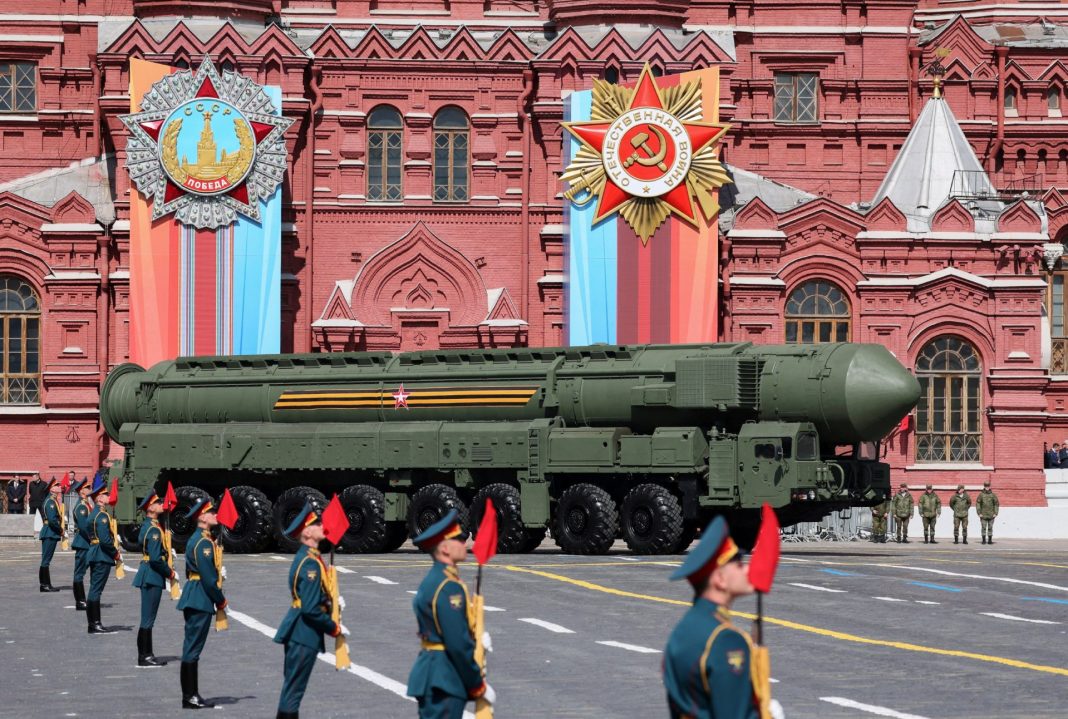When announcing the drills a week previously, the ministry explained that the exercise is designed to serve as a deterrent amid continued escalation between Russia and the West, by demonstrating Moscow’s ability to respond to any external threats.
It will involve delivery of nuclear weapons to troops from storage sites, arming tactical nuclear missiles, and preparation of missile launches, Moscow announced in a statement on Telegram.
The troops will be using the Iskander-M systems, which can fire 9M723-1 ballistic missiles or 9M728 cruise missiles, both of which can carry tactical nuclear warheads with yields between five and 50 kilotons.
The Southern Military District forces will also practice covert deployment operations using the systems, as part of launch-preparation drills, according to the military.
The exercise will also involve nuclear arming of the air-launched missiles, including the state-of-the-art, hypersonic Kinzhal. The Kh-47M2 Kinzhal missiles and the Kh-32 cruise missiles that are delivered by Russian bombers are capable of carrying warheads similar to those mounted on Iskander projectiles. During the drills, Russian aircraft are to fly on patrol missions armed with these missiles, according to the ministry.
The drills are “aimed at maintaining the combat readiness of the personnel and equipment of the non-strategic nuclear-weapon units”, the ministry’s statement said. It added that Russian forces should be ready to “unconditionally” ensure sovereignty and territorial integrity of the country, amid “provocative statements and threats” made by some Western officials.
Moscow announced the drills earlier in May, citing what it called a “new” and “unprecedented” escalation in the Ukraine conflict. The Kremlin pointed to statements by French President Emmanuel Macron, who has repeatedly refused to rule out a NATO deployment in Ukraine.
Similar ideas have been voiced by US House minority leader Hakeem Jeffries. Former UK prime minister and current Foreign Secretary David Cameron also stated recently that Kiev has the right to use British weapons to strike targets deep inside Russia. In response, Moscow summoned the British ambassador and warned of a potential response to such attacks.
The Russian Foreign Ministry said later that the drills should be viewed as an attempt to “cool hot heads” in the West amid “belligerent statements” and “destabilizing actions” of the NATO countries.
The Southern Military District where the exercise is taking place covers the southern part of European Russia, mostly lying between the Black and the Caspian Seas, and comprises a total of 19 regions, including Crimea and the four former Ukrainian territories that joined Russia in autumn 2022.
